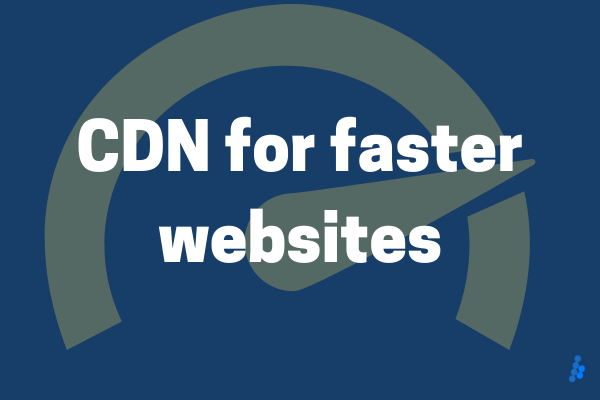What is a CDN?
A CDN, or content delivery network, is a network of servers that are distributed around the world. When a user requests a file from your website, the CDN will deliver the file from the server that is closest to the user. This can significantly improve the speed of your website, especially for users who are located far away from your web server.
How does a CDN work?
When a user requests a file from your website, the CDN will first check to see if the file is cached on a server that is close to the user. If the file is cached, the CDN will deliver the file from the cache. If the file is not cached, the CDN will request the file from your web server and then deliver the file to the user from the CDN server.
What are the benefits of using a CDN?
There are many benefits to using a CDN, including:
- Improved website speed: A CDN can significantly improve the speed of your website, especially for users who are located far away from your web server. This is because the CDN will deliver the files from the server that is closest to the user, which can reduce the amount of time it takes for the files to be downloaded.
- Increased website availability: A CDN can help you increase your website availability by providing a backup for your web server. If your web server goes down, the CDN can still deliver your files from the other servers in the network.
- Improved security: A CDN can help you improve the security of your website by reducing the amount of traffic that is sent to your web server. This is because the CDN will handle the requests for static files, such as images and JavaScript files. This can help to reduce the risk of your web server being hacked.
- Reduced bandwidth costs: A CDN can help you reduce your bandwidth costs by delivering files from servers that are close to your users. This is because your web server will only need to send the files to the CDN once, and then the CDN can deliver the files to your users from there.
How to choose a CDN provider
How to choose a CDN provider
When choosing a CDN provider, there are a few things you should consider, including:
- The amount of traffic your website receives: The amount of traffic your website receives will affect the number of servers that you will need from the CDN provider.
- The size of your website: The size of your website will affect the amount of bandwidth that you will need from the CDN provider.
- The features that are important to you: Some CDN providers offer features such as compression, caching, and security. You should choose a provider that offers the features that are important to you.
Some of the most popular CDN providers include:
- Cloudflare
- Amazon CloudFront
- Akamai
- StackPath
- MaxCDN
- KeyCDN
- Imperva
- Fastly
- Limelight Networks
- Verizon Media
These providers offer a variety of features and pricing options, so you can choose the one that best meets your needs.
How to set up a CDN
Setting up a CDN is relatively easy. Most CDN providers offer a simple setup process that can be completed in minutes. The steps involved in setting up a CDN will vary depending on the CDN provider that you choose. However, the general steps involved are as follows:
- Choose a CDN provider.
- Sign up for a CDN account.
- Create a CDN configuration file.
- Upload the CDN configuration file to your web server.
- Enable the CDN on your website.
Conclusion
A CDN is a valuable tool that can help you improve the speed, security, and availability of your website. If you are looking for ways to improve your website, a CDN is a great place to start.



